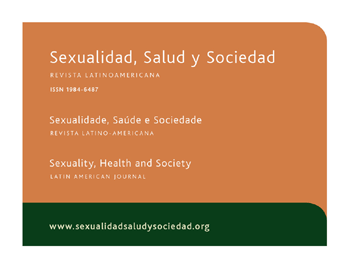EDITORIAL
This issue of Sexuality Health and Society, highlights the potential of collaboration among researchers from different countries in Latin America. The first dossier to be released by us, edited by the Brazilian anthropologist Maria Luiza Heilborn, addresses the hot topic of abortion, which in most countries of this region is still object of political dispute and moral controversy. For decades the Latin American feminist movement has denounced the repressive, criminalizing spirit of current legislation. This carries ominous consequences, on the one hand for women and poor women in particular; on the other hand to the health systems who must manage the outcomes of a mostly clandestine practice.
The Heterosexualities, Contraception and Abortion dossier (Hexca) innovates at considering the male perspective on abortion in the context of (hetero) sexuality and contraceptive management. Among the authors’ main contributions is their investment in revealing how social class differences not only influence the timing of abortion within women’s reproductive careers, but also the very meaning of this event. In addition, the dossier includes an article on Uruguay, where abortion has been recently legalized in cases other than rape, life risk for the woman, and an unviable fetusthe only reasons contemplated in most other South American countries.
Two of the contributions coming along as regular journal articles establish a significant dialog with the dossier, as they address issues of importance to women and working class women in particular. Grounded on a historical revision of the ways feminisms have conceptualized "prostitution," Nelson Ramalho reflects on social workers’ discourse and practices towards "sex workers" in Portugal. Alfonsina Faya Robles reveals the paramount importance of community health workers in the Brazilian public health system. Her ethnography at a working class neighborhood in Recife, in the Brazilian Northeast, stresses the role of state power, embodied in these agents’ practice. Coming from the same social background as their clients enables these agents to perform pedagogical interventions on neighborhood women. Centered on the mother-child dyad, this type of state intervention bears important consequences to the complex process involving the decision whether to carry a pregnancy to term or not.
The articles by Abel Sierra Madero and by Lucas Freire and Daniel Cardinali explore other dimensions of the exercise of sexuality and sexual rights. Freire and Cardinali’s analysis in the field of constitutional law supplies important tools for the argument in favor of a criminal law approach to discrimination based on sex orientation and gender identity in Brazil. It provides readers with key elements of the debate on the criminalization of homophobia currently mobilizing Brazilian activists, researchers, legal scholars and legislators. Lastly, the Cuban historian Sierra Madero sheds some light on the little known universe of homo-eroticism in Cuba. By analyzing the silent exchange of messages scribbled on the walls of public toilets in Havana, the author brings into relief the contours of a whole constellation of exchanges in the field of sex and affect. These are subject to multiple constraints, some specific to the erotic experience, others due to prejudice and marginalization.
Publication Dates
-
Publication in this collection
20 Dec 2012 -
Date of issue
Dec 2012

